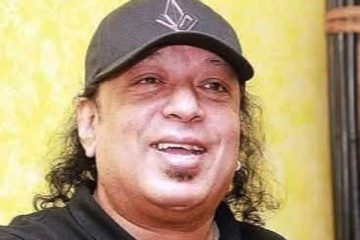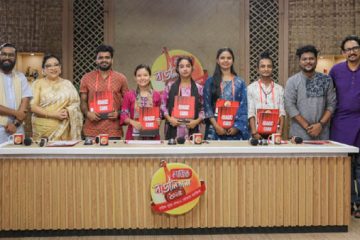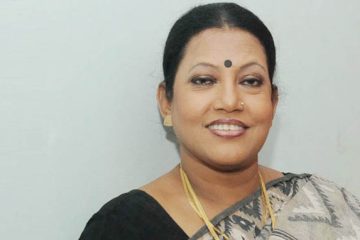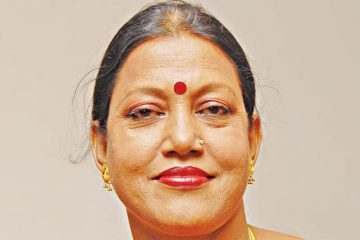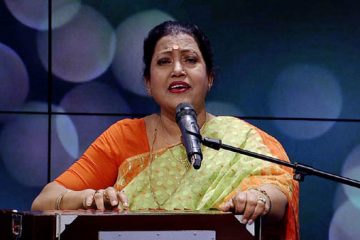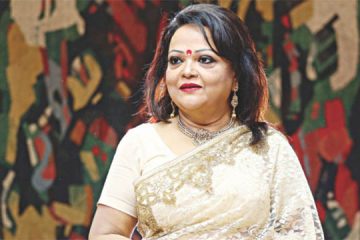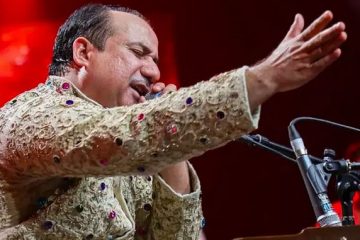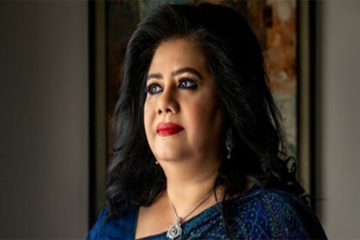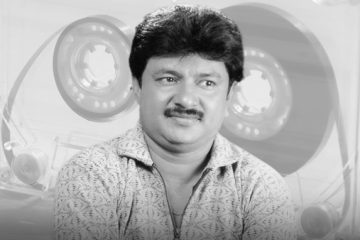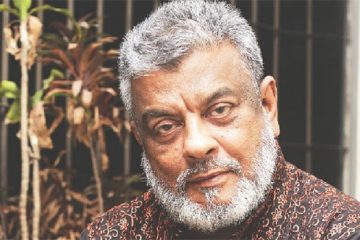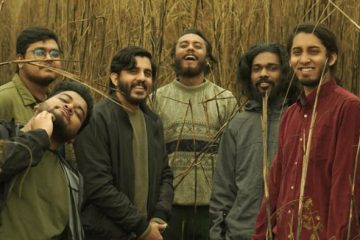 Mothers are always special. Some stand out from others and make us realise that mothers are made in heaven. And a few of them turn out to be mother of all mothers. Shefali Iqbal is among the rare few.
Mothers are always special. Some stand out from others and make us realise that mothers are made in heaven. And a few of them turn out to be mother of all mothers. Shefali Iqbal is among the rare few.
It was about 30 minutes away from midnight in Bangkok. Shefali in her early fifties was running like a spring chicken to manage her still busy Bangladeshi food joint — Monika’s Kitchen. Clad in a simple salwar-kameez and with black headscarf, Shefali looked like any other ordinary woman in Bangladesh.
The mild glint in her wide eyes and a caring smile at corners of her mouth would hardly reveal her inner strength, the steely resolve that took her to Bangkok and made her wage an awe-inspiring battle to save the life of Naima Sultana Monika, her only daughter.
It all started on August 27, 2001 and with a gas cylinder explosion at the kitchen of their sprawling Tongi house. The fire left Monika, who just finished her master’s in sociology from Dhaka University, badly burnt and barely alive. Shefali was out with her film producer husband Mohammad Iqbal to run errands when the accident occurred. They rushed home, starting a long ordeal of the family of three.
Monika was brought to Dhaka Medical College Hospital (DMCH) with an incredible 70 percent burn injury. Usually, doctors see little hopes of survival for patients with injuries 30 percent or beyond.
“I’m sorry, but you take mental preparation. She is not going to survive,” Iqbal yesterday recalled a Dr Sen telling him at DMCH upon examination on Monika, whose non-stop screaming with unexplainable pain had turned into a whimper by then.
She was all bandaged, and her parents kept her on her feet holding her hands tight. She was not allowed to lie down or free her hands from their grips, as it would aggravate the injuries.
Monika managed to cling on to her life without losing her consciousness or drifting off to sleep at a hospital that lacked an intensive care unit for burn patients and proper medicare. With odds heavily stacked against them, Shefali refused to say it’s over, inspiring her family to take Monika to Bumrungrad Hospital in Bangkok where, they were told, serious burn treatment could be possible.
But they could not get Monika aboard a Bangkok plane before September 17. Sitting at Monika’s Kitchen now, Shefali can still remember the 21 days of unbearable sufferings at DMCH — memories she wants to forget, all in vain though.
“I cannot forget a single moment of Monika’s struggle, her face contorting in severe pain,” Shefali told The Daily Star in Bangkok.
“How could I sleep?” she asked.
Hours, days dragged on. But she could not shut her eyes for sleep. “I dozed a little at times. But I had to stay up, holding hands of my baby.”
Though in dreadful pain, Monika had noticed how her simple Ma-Moni, as she called her mother, taking out the last ounce of her energy to keep her alive.
“My Ma-Moni stayed standing beside me for 21 days,” Monika told this correspondent in Dhaka yesterday. “She was tired so much so that once Ma-Moni dozed off while giving water to my mouth in a spoon.”
Monika returned to Bangladesh at the end of 2007 fully treated, but not before completing an MBA degree from the prestigious National Institute of Development Administration (NIDA) in Thailand.
“Ma-Moni made all these possible,” said Monika, her voice thick with emotions. Shefali transformed herself from a simple housewife into an incredible woman to make an impossible possible in over half a decade in Thailand.
The moment they landed at Bangkok, the Bumrungrad authorities took over Monika’s charge. A special cabin was set up for her on the 10th floor to begin a prolong treatment. Medicare was not in short supply but it was too costly, forcing Monika’s father to fly home and arrange fresh fund. There were days when about 1 lakh bahts were spent a day.
Her dressing was changed regularly, peeling off the temporary skins. “They had to peel off the skins like a sacrificial animal during Eid. I used to shout at top of my voice, with my Ma-Moni holding me tight in a strong grip,” Monika recalled.
To save money, the parents used to do all possible austerities. They slept on hospital sofas for two and a half years, shared a single meal and skipped almost every necessary expense. But that was not enough to foot the astronomical medical bills.
However, Shefali soon became a well-known person among doctors, hospital staff and patients. Her never-say-over battle turned into the most-talked-about subject in the hospital arena. Everybody was willing to help her in one way or the other. She also became a source of inspiration for Bangladeshi patients there.
Three years drifted by. Monika was released from the hospital for a series of surgeries at Ramathibadi Hospital under Prof Vithi, who was the man behind the Monika miracle.
As life eased a little for Shefali, she started cooking for patients out of caring. But the fate planned something special for her this time. Soon Shefali’s cooking became popular among patients, encouraging her to open a catering of her own.
She started Monika’s Kitchen from her kitchen and soon she had to hire a space and workers to meet the growing demand.
Thai authorities too came forward to help her open business, granting a non-immigrant visa and permission for business. In the last few years, Shefali has become a successful entrepreneur and a role model for immigrants.
Back in Bangladesh, Monika is now working for Structural Engineering Limited in Dhaka. But Shefali still works round the clock in Bangkok. “I go to the market at 6:00am to buy groceries and work until 1 in the morning next day. I cannot go to sleep before 2:30am,” she said.
But she feels all too content of late, as her business could not only meet expense of Monika’s treatment but also her very costly study at NIDA. She knows it is time she wound up business and returned home.
With the world celebrating Mother’s Day today, the mother in Shefali too plans to call her mission over, real soon.

